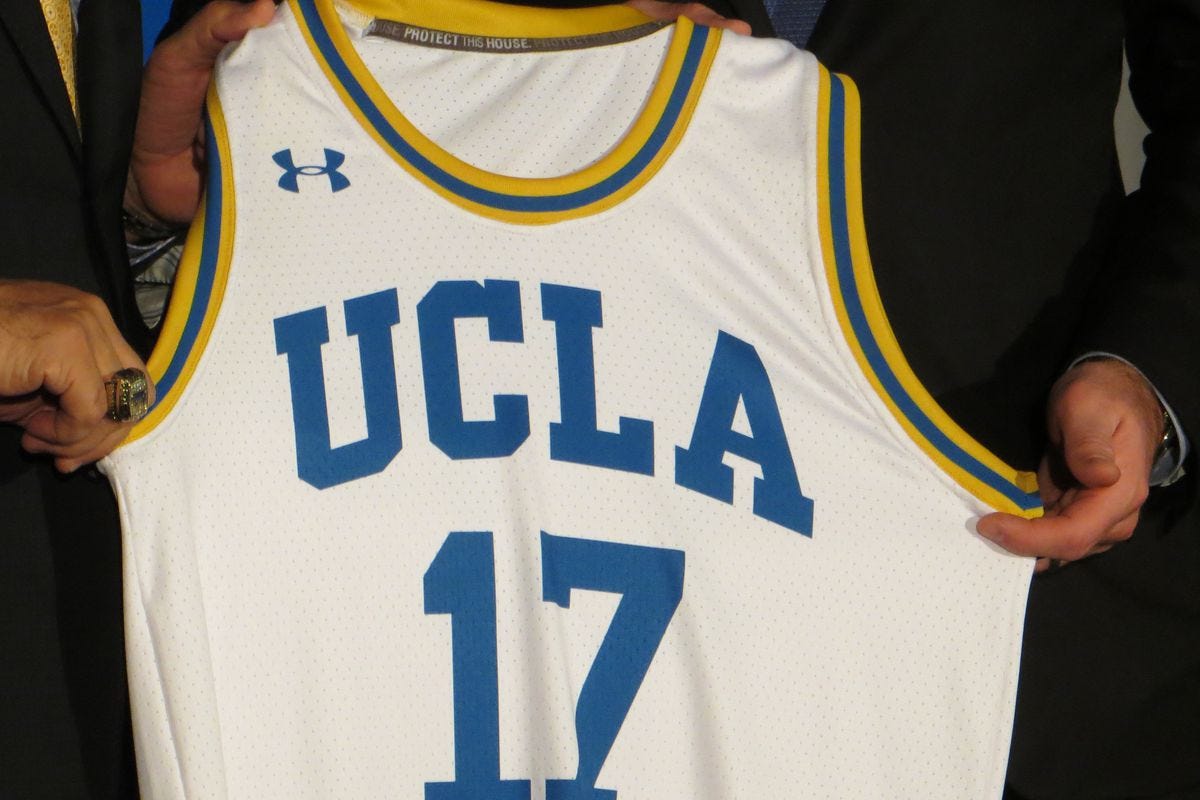UCLA Sues Under Armour Over Termination of Record-Setting Apparel Deal
UCLA filed a federal lawsuit against the apparel company yesterday.

(Photo Credit: Joe Piechowski)
Yesterday, UCLA filed suit against Under Armour in U.S. District Court in Los Angeles over the June termination of the athletic department’s record-setting $280 million apparel deal with the company.
The details of the lawsuit provide more details into what Under Armour claimed when the company notified UCLA that it was terminating the deal.
Ben Bolch of the LA Times writes:
After approaching UCLA in April to ask that its payment for that month be pushed back to July as part of a cash-flow shortage, the lawsuit states, Under Armour informed UCLA in late June that it wanted to end its contract, citing three grounds for termination.
Under Armour told the school it was invoking the force majeure clause in the wake of the COVID-19 pandemic that has halted college sports since March; that the UCLA baseball team had completed fewer than 50% of its games last season, a requirement for one of its core teams; and that the school had failed “to take reasonably appropriate action(s)” after the arrest and indictment of men’s soccer coach Jorge Salcedo in connection with the “Operation Varsity Blues” college admissions scandal.
While it will be interesting to see what happens with respect to the first two reasons, the claim that the school failed to take appropriate action after the arrest and indictment of Jorge Salcedo will be hard for the company to justify because UCLA put Salcedo on leave the same day as his arrest and he resigned shortly thereafter.
It would seem that the linchpin to UCLA’s suit is the company’s request to delay their April payment until July. It also appears to fall into what could be construed as a pattern of financial shenanigans from Under Armour.
The Securities and Exchange Commission and the U.S. Department of Justice have made the company a target over Under Armour making its finances look better than they were. Bolch points out that the time frame involved occurred while UA was negotiating with UCLA, which would make it seem that the entire deal was one that was going to be hard for Under Armour to fulfill. He quotes the schools lawsuit:
“Had UCLA known that Under Armour was making false financial statements in violation of law and SEC regulation, and falsely reporting its sales reported from quarter to quarter,” the school wrote in its lawsuit, “UCLA would never have entered into the Agreement and/or would have terminated the Agreement at a time when other similarly-attractive sponsorship agreements could have been negotiated for UCLA.”
To be fair, that sounds like a bit of Sunday morning quarterbacking on UCLA’s part, but it seems reasonable. No one in the right mind would believe that a company having financial trouble would be able to live up to their end of such a large deal.
But it’s the request to delay the April payment that seems to be the key to UCLA’s suit as it appears to be evidence that Under Armour’s motivation here is financial and not related to the COVID-19 pandemic.
The question that will need to be resolved by the court is “Does that matter in the midst of a pandemic or can UA use COVID-19 and the force majeure clause to terminate the contract?”
Stay tuned….
Go Bruins!
Thanks again for supporting The Mighty Bruin. Your paid subscriptions make this site possible. Questions, comments, story ideas, angry missives and more can be sent to to @TheMightyBruin on Twitter.


As they say “there’s always a rub.” I’d love for Chip to go bye bye through force majeure but UA is about big money and we need to defend against that assertion . We’re not going to eat UA’s force majeure argument and the $200 million we’re owed for apparel and licensing (whether that comes from UA or a third party with UA making up the difference after we mitigate damages) so we can get out of paying Kelly the five or ten million I suppose he’s owed on his contract
So Guerrero and friends failed to look into the finances of a company that was offering them a record setting financial deal despite the declining brand of the University? I think someone speculated as to that exact thing in the comments to my June guest article